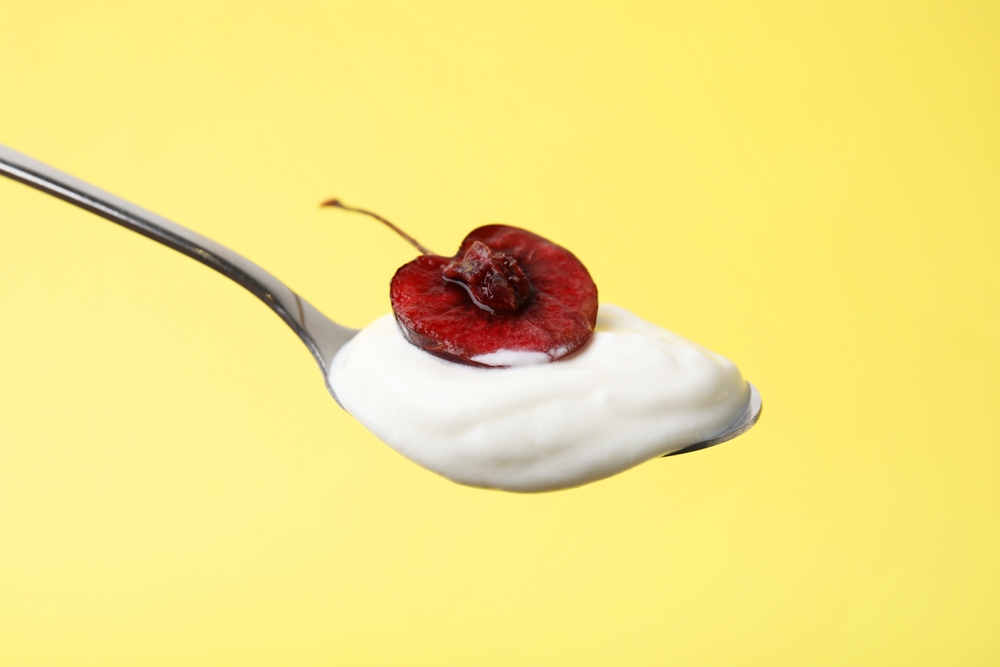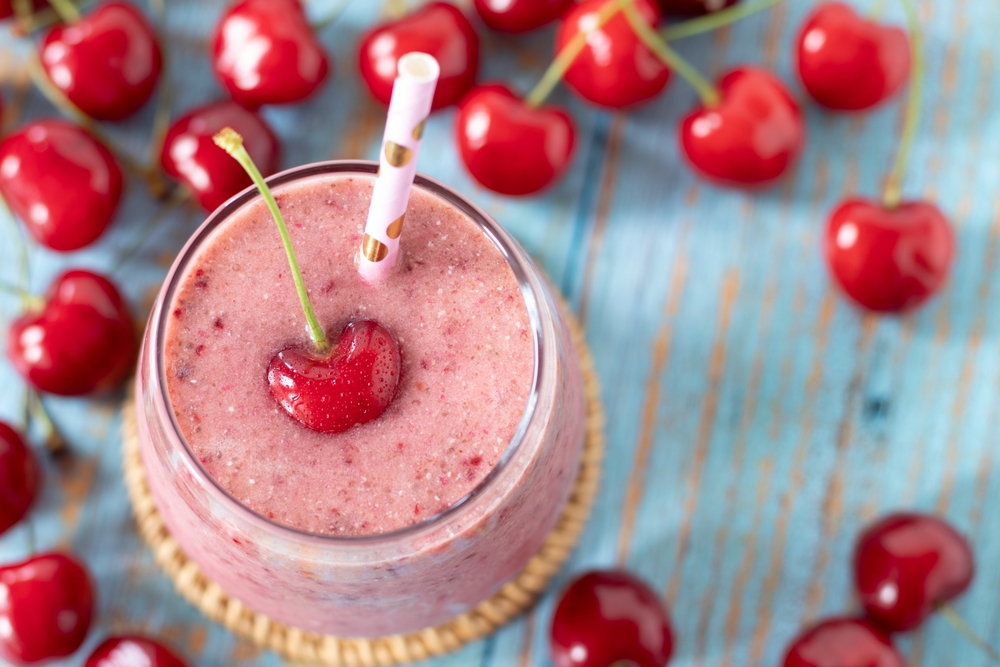Surprising Health Benefits of Cherries
One of the best parts of summer is all the fresh fruit that becomes available—especially cherries. Believe it or not, these sweet, bite-sized fruits are better for you than you may have thought.
From helping you sleep to warding off disease, Cherries—both sweet and tart—have numerous health benefits.
We asked nutrition experts to break it down for us, and here’s what they said.

Nutritional Source
According to Jessica Isaacs, R.D., C.S.S.D., an NBA dietician and member of Cheribundi’s recovery advisory council, cherries are a great source of vitamin C, calcium, iron, magnesium, and potassium.
 Susanne Jutzeler, suju-foto, Pexels
Susanne Jutzeler, suju-foto, Pexels
Serving Sizes
A typical serving of cherries can look different depending on how you eat them. For the most part, “one serving” can look like:
- One cup of unpitted cherries
- A quarter cup of dried cherries
- 8-ounces of tart cherry juice
Specific Nutrition Breakdown
One cup of pitted cherries provides a significant source of:
- Calories: 97
- Protein: 2 g
- Carbohydrates: 25 g
- Fiber: 3 g
- Sugar: 20 g
- Magnesium: 17 mg
- Potassium: 342 mg
- Vitamin C: 11 mg
- Vitamin A: 97 IU
So, now we know what’s in them—but how does all of this affect our bodies?
Cherries Help You Sleep
If you’re looking for a natural sleep aid—cherries are a good place to start. Research suggests that tart cherry juice or cherry extract can not only help you fall asleep but also stay asleep.
According to nutrition scientist Stephanie Nelson, M.S., R.D., this is because the cherry juice can impact your tryptophan, serotonin, and melatonin levels, which are hormones that manage sleep.
Cherries Can Help Fight Inflammation
If you’re looking for a natural way to fight inflammation, look no further than a bowl of sweet cherries. Research suggests that consuming sweet cherries can lower inflammatory biomarkers in your body—which helps prevent chronic inflammatory diseases like diabetes, arthritis, cancer and heart disease.
Cherries Contain Polyphenols
Speaking of inflammation, Nelson says cherries contain polyphenols—which are compounds found in plants that have an antioxidant effect. This can protect against damage, and also slow down the inflammatory process..
Cherries Can Keep Your Heart Healthy
As mentioned, cherries can have a positive effect on heart disease—which is caused by the hardening of plaque in the arteries and forms during the inflammatory process.
Cherries reduce inflammation, which means they can slow down the formation of plaque—preventing heart disease.
Cherries Can Improve High Blood Pressure
Speaking of heart health—cherries can also improve high blood pressure.
According to Kelly Pritchett, Ph.D., R.D., C.S.S.D., associate professor of nutrition and exercise science at Central Washington University and a spokesperson for the Northwest Cherry Growers, cherries are high in potassium—which is what helps to lower high blood pressure.
Cherries Can Lower Cholesterol
Not only can they lower high blood pressure, cherries are also one of the many foods that can lower cholesterol too.
Research suggests foods high in anthocyanins—a potent antioxidant found in deeply colored fruits—are said to boost HDL cholesterol numbers and lower LDL cholesterol numbers.
 Pink Sherbet Photography, CC BY 2.0, Wikimedia Commons
Pink Sherbet Photography, CC BY 2.0, Wikimedia Commons
Cherries May Ward Off Cancer
Recent studies have found that dark cherry extracts could possibly be used to treat breast cancer cells in a lab, and determined that they have cancer-fighting agents that can inhibit cancer cell growth.
 liz west, CC BY 2.0, Wikimedia Commons
liz west, CC BY 2.0, Wikimedia Commons
Cherries Can Help With Weight Loss
One serving of cherries contains three grams of fiber—which is especially helpful for weight loss. High-fiber foods, like fruits and veggies, can help you feel fuller for longer.
Cherries Can Help Lower Blood Sugar
Pritchett also notes that cherries are considered a low-glycemic food, meaning they can help manage blood sugar levels. This is also due to their high-fiber content.
Cherries Can Improve Skin Health
Cherries are high in vitamin C, which Nelson says is needed to produce the collagen that makes up your skin. She also notes that a serving of cherries can provide 10 mg of vitamin C—which is about 11% of your daily needs.
 Roman Samborskyi, Shutterstock
Roman Samborskyi, Shutterstock
Cherries Can Improve Workout Recovery
Cherries are believed to help you recover from exercise-related muscle damage (like tearing muscles). According to Nelson, cherries can help you recover faster and reduce any soreness you may experience.
Isaacs adds that research shows tart cherries can “enhance endurance exercise performance” by increasing oxygen flow to the muscles.
Cherries Can Support Brain Health
According to Isaacs, studies also show that tart cherries and tart cherry juice contain antioxidants and polyphenols—which have a protective effect on brain cells.
Pritchett adds that anthocyanin—present in cherries—can help with improved brain and vision function and also improve memory and cognition in adults.
What’s better—fresh, frozen, juice or died?
While all forms of cherries have their benefits, the one main difference between the type of cherries is that cherry juice lacks the fiber that whole cherries provide. This may limit the benefits of a high-fiber diet.
However, cherry juice can offer more vitamins and minerals. Nelson claims that tart cherry juice versus whole cherries can offer more overall nutritional benefits if you’re looking to maximize the benefits for sleep, exercise, and inflammation.
Nelson also adds that dried cherries may have added sugar and less fiber per serving.
Overall, are cherries good for you?
Absolutely! Not only do they taste delicious, they can be added to a low-calorie diet to aid in weight loss. They’re said to be rather filling for a small-size snack. And with only 90 calories per serving, and 3g of fiber per serving, sweet cherries are a great choice for anyone.
Which cherries are the healthiest?
According to Lauren Harris-Pincus, M.S, R.D.N, founder of NutritionStarringYOU and author of The Everything Easy Pre-Diabetes Cookbook, sweet, tart, rainier, and Montmorency cherries are the best ones.
This is because they have similar nutritional profiles—like vitamins A and C, potassium, fiber, and antioxidants.
How many cherries should you eat per day?
There is no set number of cherries to eat in a day. Your daily intake depends on your nutritional goals.
As we know now, cherries are lower in calories than many other foods, and fresh cherries have no added sugar. They also have about 10% of your daily fiber value.
Pairing cherries with foods high in protein—like Greek yogurt with pistachios or cottage cheese and walnuts or pecans—can ensure a balanced meal and leave you feeling satisfied.
What color cherries are the healthiest?
According to Pritchett, darker varieties of Northwest-grown sweet cherries (like Bing cherries) get their dark color from their anthocyanins.
One study found that anthocyanins possess “antidiabetic, anticancer, anti-inflammatory, antimicrobial, and anti-obesity effects, as well as prevention of cardiovascular diseases (CVDs).”
So, while all cherries offer substantial health benefits, the darker varieties may offer more.
When is the best season to eat cherries?
Sweet cherry season usually starts in June and can be enjoyed until mid-August. But this can vary based on where you live.
Check with your local farmer’s market or grocery store to find the ideal time to buy fresh cherries.
 Antti T. Nissinen, CC BY 2.0, Wikimedia Commons
Antti T. Nissinen, CC BY 2.0, Wikimedia Commons
Different Ways to Enjoy Cherries
There are many ways to enjoy cherries in your diet.
Many people like to bake cherries in desserts and treats, like classic cherry pie or Pumpkin-cherry Breakfast Cookies.
You can also toss them in a salad, or add as a side dish (like with Seared Pork Chops with Cherries and Spinach).
Or, blend your cherries into a smoothie or add pure cherry concentrate to your water for added on-the-go boost.
























